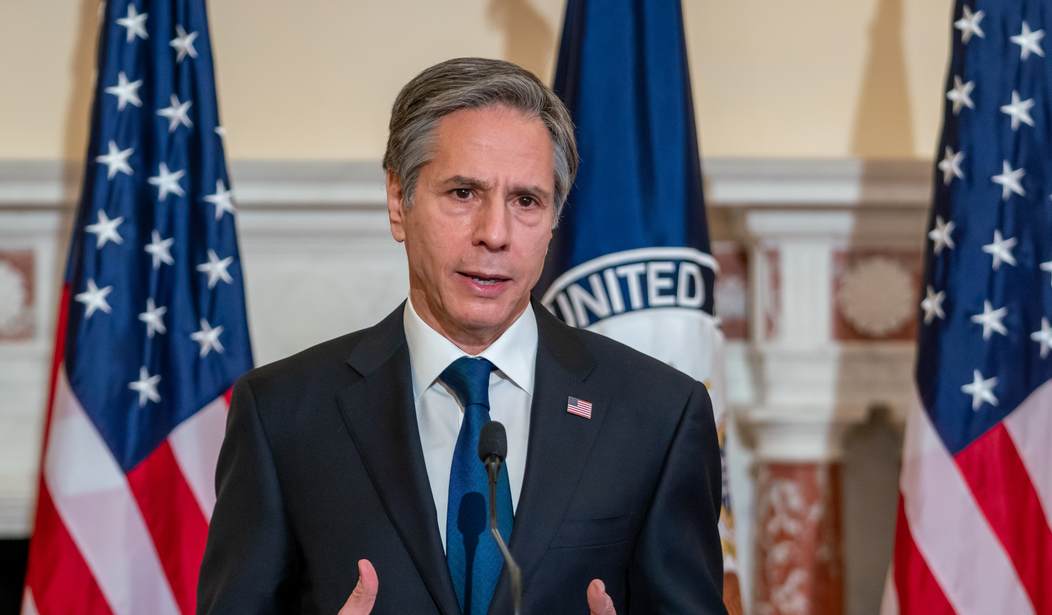On Tuesday, Secretary of State Antony Blinken announced plans for the United States to reopen the consulate in Jerusalem. The announcement came during a press briefing with Palestinian Authority President Mahmoud Abbas while the secretary was traveling throughout the region. The decision, should Israel agree to it, will be a reversal of a policy under the Trump administration to merge the consulate with the U.S. embassy in Jerusalem, which until then had been in Tel Aviv.
"As I told Prime Minister Netanyahu and President Abbas, the United States will be moving forward with the process to reopen our consulate in Jerusalem. That's an important way for our country to engage with and provide support to the Palestinian people. We're also working in partnership with the United Nations, the international community, the Palestinian Authority, the Palestinian people, the Government of Israel to assist in the relief and recovery efforts in Gaza. The – this relief is urgent. We have to respond to the profound need to help people in this moment," the secretary told reporters.
Good luck on getting objectivity from the United Nations, as it has consistently maligned Israel.
Despite Axios reporting that Israel Prime Minister Benjamin Netanyahu prefers to keep to the Trump administration's move, sources told The Times of Israel that the U.S. expects Israel to ultimately comply:
A former US official familiar with the matter told The Times of Israel that the US expects Israel to eventually comply with the request, as Jerusalem will likely want to reserve its clashes with the administration to conversations about its efforts to return to the Iran nuclear deal.
The former official said that the Biden administration recognized the urgency of reopening the mission during the latest Gaza violence. As tensions spiked in Jerusalem in the weeks leading up to the May 10-20 war in the Strip, the US lacked an independent mission with close ties to the relevant parties and an ability to thoroughly report back to Washington, the ex-official said, acknowledging that the White House had been late in its engagement efforts aimed at de-escalation.
That realization is what led the White House to fast-track their plans to reopen the consulate, which some thought would have to wait until after a permanent government is formed in Israel, a source familiar with the matter said.
Recommended
White House Press Secretary Jen Psaki confirmed the plans during a press briefing back home. (Emphasis mine):
Q: Thanks, Jen. Secretary Blinken announced today that the U.S. wants to reopen the consulate in Jerusalem.
MS. PSAKI: Yeah.
Q: I’m just wondering, why now — why not three months ago or four months ago, given the role that consulate has played historically, pre-the last four years?
MS. PSAKI: Sure. You’re right, and we didn’t — you’re right, in that he has announced that, I should say. And that it is an important step in our view, in terms of continuing to rebuild the relationship with the Palestinian leaders that was cut off for several years because of the closure of the consulate, because UNRWA funding was cut off in 2018, and there really wasn’t a method for engaging with Palestinian leaders and others.
Look, we’ve taken a number of steps over the last couple of months. Back in April, we announced the resumption of U.S. assistance to the Palestinians, including economic development, humanitarian, and security assistance. In our view, this is an – a next natural step to announce plans to reopen the consulate. And again, also announce our commitment to contributing to the funds to rebuild Gaza.
So these are all part of our efforts to rebuild that relationship.
Another reversal, which is unlikely to be met with the necessary approval from Congress, will be to reopen the Palestinian Liberation Operation mission in DC, which Trump closed in 2017. The PLO was categorized as a terrorist organization by Congress in 1987.
Blinken also mentioned that the United States will be sending $360 million to Palestine.

























Join the conversation as a VIP Member